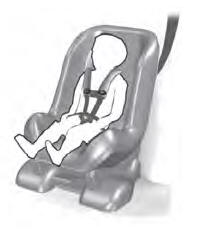Lincoln Aviator: Climate Control System - General Information / General Procedures - Electronic Leak Detection - Vehicles With: R134A Refrigerant
Special Tool(s) / General Equipment
| Electronic Leak Detector |
Inspection
-
NOTE: Use a Rotunda-approved Electronic Leak Detector for R-134a refrigerant SAE Certified to J2791.
NOTE: Good ventilation is necessary in the area where electronic A/C leak testing is to be carried out. If the surrounding air is contaminated with refrigerant gas, the leak detector indicates this gas all the time. Odors from other chemicals such as antifreeze, disc brake cleaner or other cleaning solvents can cause the same problem. Using a fan to ventilate the area to be tested before proceeding with the leak detection procedure is helpful in removing small traces of contamination from the air, but the fan should be turned off during actual testing.
NOTE: If the surrounding air is contaminated with refrigerant gas, the leak detector indicates this gas all the time. Odors from other chemicals such as antifreeze, disc brake cleaner or other cleaning solvents can cause the same problem.
NOTE: R-134a, if present, is heavier than air, and tends to move down from the source of the leak. It is possible that a leak may not be detected if the leak detector tip is held above the leaking fitting, line or component. Always be sure to thoroughly leak test below, above and around the fitting, line or component for the presence of R-134a.
Leak check the service ports. Remove caps and blow air over the service ports to remove trapped refrigerant before leak testing ports.
-
023‐22791 Robinair Infrared A/C Refrigerant Leak Detector w/Case
Use the General Equipment: Electronic Leak Detector
-
023‐22791 Robinair Infrared A/C Refrigerant Leak Detector w/Case
-
NOTE: The system pressure should be 413-551 kPa (60 - 80 psi) at 24° C (75.2° F) with the engine off and cool. The pressure reading may be higher if the engine is hot.
Leak test the refrigerant system. Follow the instructions included with the Electronic Leak Detector for handling and operation techniques.
 General Procedures - Condenser Core Leak Check - Vehicles With: R1234YF Refrigerant
General Procedures - Condenser Core Leak Check - Vehicles With: R1234YF Refrigerant
Special Tool(s) /
General Equipment
Air Conditioning Service Unit
Air Conditioning Adaptor Kit
Inspection
Recover the refrigerant...
 General Procedures - Evaporator Core Leak Check - Vehicles With: R134A Refrigerant
General Procedures - Evaporator Core Leak Check - Vehicles With: R134A Refrigerant
Special Tool(s) /
General Equipment
Air Conditioning Service Unit
Air Conditioning Adaptor Kit
Inspection
Recover the refrigerant...
Other information:
Lincoln Aviator 2020-2025 Owners Manual: Power Windows
WARNING: Do not leave children unattended in your vehicle and do not let them play with the power windows. Failure to follow this instruction could result in personal injury. WARNING: When closing the power windows, verify they are free of obstruction and make sure that children and pets are not in the proximity of the window openings...
Lincoln Aviator 2020-2025 Service Manual: Description and Operation - Instrument Panel and Interior Switches Illumination - System Operation and Component Description
System Operation System Diagram - Networked Illumination - Doors NOTE: Not all vehicles come equipped with all the items listed below. The door latch modules are identified as follows: Left front door - DCME Right front door - DCMF Left rear door - DCMG Right rear door - DCMH Item Description 1 MS-CAN 2 DCME 3 Light sensor 4 DCMF 5 DCMH 6 DDM 7 PDM 8 RF door lock switch 9 RF door window control switch 10 LF door window control switch 11 RR door window control switch 12 LR door window control switch 13 LF door lock switch 14 RR door lock switch 15 LR door lock switch 16 GWM 17 DCMG 18 LH front interior door latch switch 19 RH front interior door latch switch 20 LH rear interior door latch switch 21 RH rear interior door latch switch 22 LIN 23 LIN 24 HS-CAN1 25 BCM 26 Dimmer switch 27 Headlamp switch System Diagram - Networked Illumination - Steering Wheel Switches Item Description 1 Light sensor 2 RH lower steering wheel switch 3 RH upper steering wheel switch 4 LH lower steering wheel switch 5 LH upper steering wheel switch 6 SIMA 7 Upshift paddle switch 8 Downshift paddle switch 9 HS-CAN2 10 GWM 11 HS-CAN1 12 LIN 13 BCM 14 Dimmer switch 15 Headlamp switch System Diagram - Networked Illumination - Other Modules Item Description 1 FCIM 2 APIM 3 Light sensor 4 ACM 5 IPC 6 FDIM 7 without Touchscreen 8 FCDIM 9 RHVAC 10 RACM 11 LIN 12 HS-CAN1 13 MS-CAN 14 HS-CAN3 15 GWM 16 Dimmer switch 17 Headlamp switch 18 BCM Network Message Chart Module Network Input Messages - ACM, APIM, DCME, DCMF, DCMG, DCMH, DDM, FCIM, RACM, RHVAC, SIMA, GWM, IPC and PDM...
Categories
- Manuals Home
- Lincoln Aviator Owners Manual
- Lincoln Aviator Service Manual
- Activating Intelligent Access
- Description and Operation - Jacking and Lifting
- Keyless Entry
- New on site
- Most important about car
Child Seats

Use a child restraint (sometimes called an infant carrier, convertible seat, or toddler seat) for infants, toddlers and children weighing 40 lb (18 kg) or less (generally four-years-old or younger).
Using Lap and Shoulder Belts
WARNING: Do not place a rearward facing child restraint in front of an active airbag. Failure to follow this instruction could result in personal injury or death.
